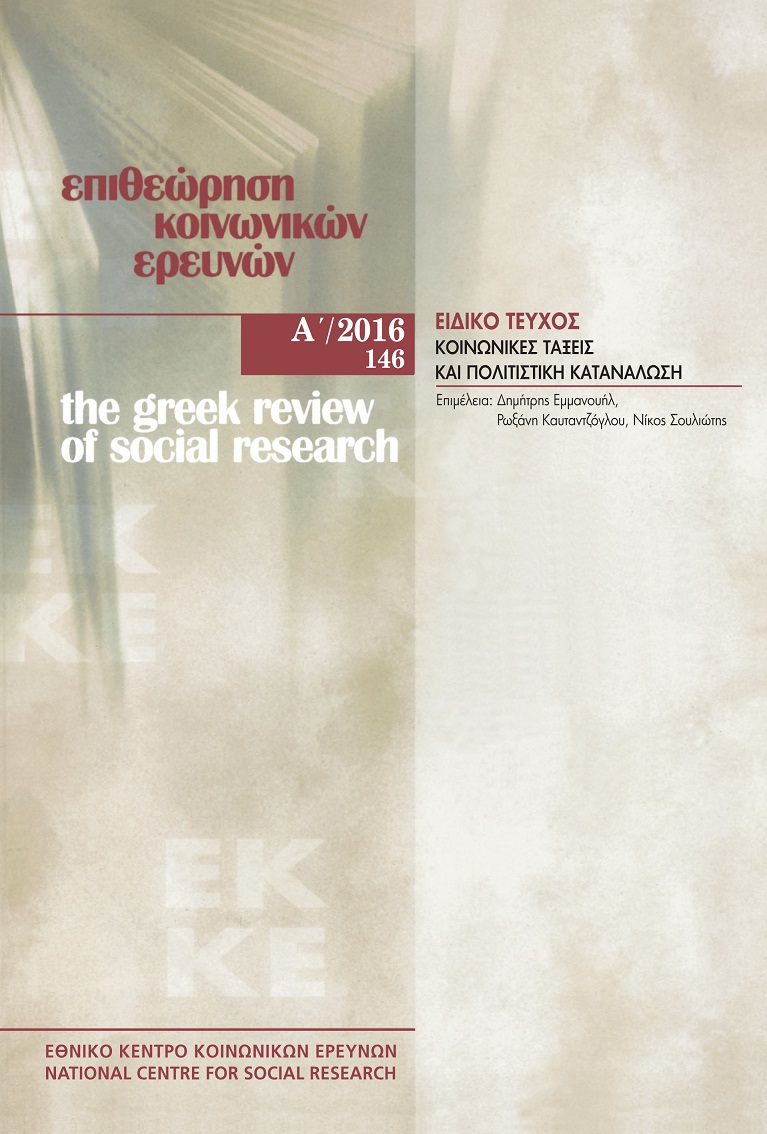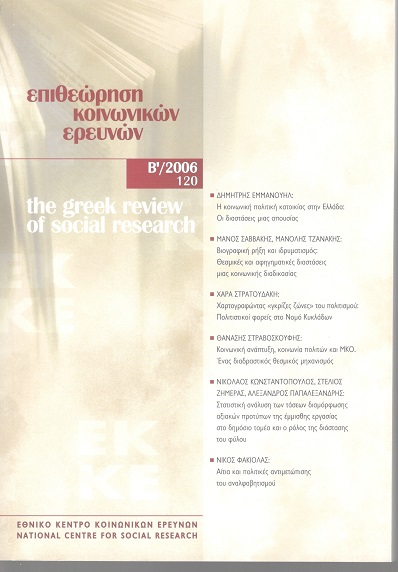Socioeconomic class, status group and social origin in Athens c.2013 - A structural schema for the analysis of urban consumption

Abstract
The paper outlines the analytical framework and the empirical correlates regarding the main dimensions of social stratification that were explored through a survey research in 2013 Athens examining the relationship between stratification and consumption – both material and cultural. Focusing on cultural consumption, it is argued that a neo-weberian framework based on a clear-cut distinction between socioeconomic class and social status coupled with social origin data as indicators of cultural capital offers a potent model of structural determinants of consumption patterns. The paper examines the available material for an application of such a model in the Athenian context and offers an example of its relevance for the empirical analysis of cultural and mixed cultural/material consumption in the case of the breadth of choices of theater genres and types of places for dining out.
Article Details
- How to Cite
-
Εμμανουήλ Δ. (2016). Socioeconomic class, status group and social origin in Athens c.2013 - A structural schema for the analysis of urban consumption. The Greek Review of Social Research, 146, 39–76. https://doi.org/10.12681/grsr.10643
- Section
- Articles

This work is licensed under a Creative Commons Attribution-NonCommercial 4.0 International License.
Authors who publish with this journal agree to the following terms:
- Authors retain copyright and grant the journal right of first publication with the work simultaneously licensed under a Creative Commons Attribution Non-Commercial License that allows others to share the work with an acknowledgement of the work's authorship and initial publication in this journal.
- Authors are able to enter into separate, additional contractual arrangements for the non-exclusive distribution of the journal's published version of the work (e.g. post it to an institutional repository or publish it in a book), with an acknowledgement of its initial publication in this journal.
- Authors are permitted and encouraged to post their work online (preferably in institutional repositories or on their website) prior to and during the submission process, as it can lead to productive exchanges, as well as earlier and greater citation of published work (See The Effect of Open Access).



